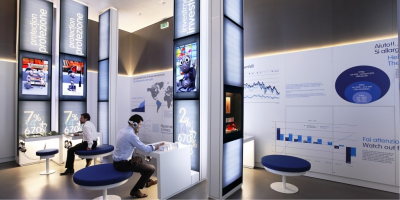Turin Museum of Saving looking for contributions

TURIN -- The Museum of Saving (Museo del Risparmio) has launched a call for action: please give us your family’s old housekeeping notebooks. They will be a valuable contribution to the exhibition which the Museum is preparing to hold March 8.
“My Grandma’s wisdom! From housekeeping notebooks to the kakebo” will be an exhibition of family memories and heirlooms provided by various institutions. The latest addition, a reviewed kakebo, is an updated version of the housekeeping records invented in 1904 by the Japanese Motoko Hani, the daughter of samurai and the first female director of a women’s magazine.
There is a lot we can learn from past generations, and the ability to plan should be taken as an example. How much did our grandmothers spend? How did they balance family, land, farms and crops? How did they record this spending?
To participate in the initiative, photos are needed of your housekeeping records (at least the cover and one internal page), together with a comment which tells the story or the details. They can be sent to the Museum of Saving via Facebook, email and Instagram by February 20. Details are on the website www.museodelrisparmio.it.
This initiative, combined with an educational meeting dedicated to the “secrets” of balancing the family books, marks the beginning of the round of meetings called “Arianna: The thread of finance” -- http://www.museodelrisparmio.it/arianna-il-filo-della-finanza/
The underlying idea is that the most important concepts of the economy and the art of investing may be learnt in a simple and intriguing manner, going beyond the stereotypes which see women as saving too much and having no appetite for risk.
The Museum of Saving in Turin is one of the most unusual places in the world to learn, in an interactive and pleasant manner, about the history and use of money and the economy, also including related aspects in literature and film-making.
In addition to the permanent exhibition, the Museum promotes several activities on financial education. The first report on the initiatives developed in Italy in this sector - in which the Museum participated alongside the Bank of Italy, Ivass, CONSOB, Covip, Fondazione per l’Educazione Finanziaria e al Risparmio - was presented in Rome on January 18.
The research confirms how Italians’ level of financial awareness is among the lowest in Europe. It is this shortcoming which makes them less aware in their financial choices and requires a national strategy as well as attractive initiatives that are able to arouse curiosity and directly involve people.
gn


